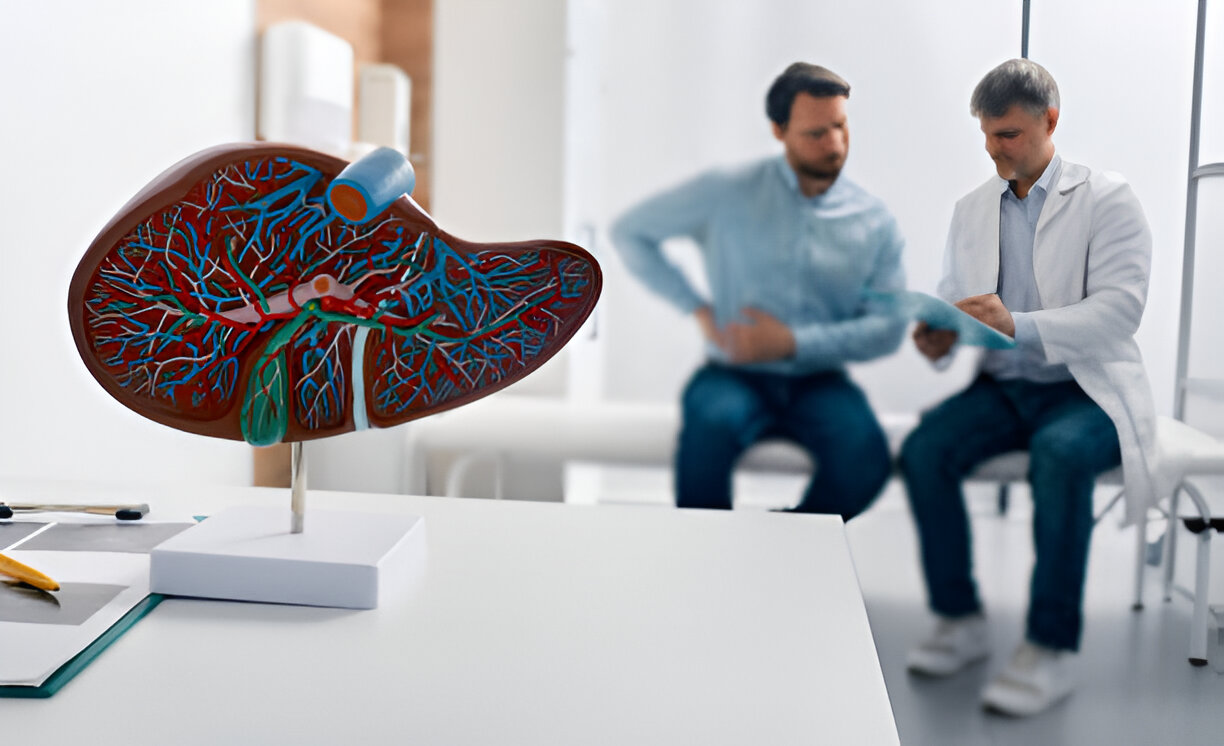Globally, an estimated 50 million people live with chronic hepatitis C virus infection, with about 1 million new infections each year, according to the CDC. While antiviral medications can effectively treat hepatitis C, the journey to recovery can be challenging, often marked by extreme fatigue, nausea, and pain due to medication side effects. Imagine managing not only the infection but also these debilitating side effects from the very treatments intended to cure it. For many patients, hepatitis C treatment and medical marijuana work together as a solution, with medical marijuana offering potential relief from treatment-related discomfort, making recovery a more tolerable experience. But how exactly can medical marijuana support patients dealing with hepatitis C?
What Is Hepatitis C?
Hepatitis C is a liver infection caused by the Hepatitis C virus (HCV), which can lead to severe liver inflammation and damage if untreated. HCV affects the liver’s ability to function properly and, in advanced cases, can lead to cirrhosis, liver failure, and even liver cancer. The virus primarily spreads through contact with infected blood, often through shared needles, blood transfusions before 1992, or, less commonly, through sexual contact.
The symptoms of Hepatitis C may not appear until the disease has advanced, which makes early detection challenging. Common symptoms include fatigue, abdominal pain, nausea, loss of appetite, and jaundice (yellowing of the skin and eyes). Due to the delayed onset of symptoms, many people are unaware they’re infected, potentially allowing the virus to progress to a more severe stage.
Treatment for Hepatitis C typically involves antiviral medications designed to eradicate the virus from the bloodstream, but these drugs often come with intense side effects. These effects, which can include nausea, fatigue, insomnia, and severe mood swings, lead some patients to discontinue treatment altogether. This is where medical marijuana may play an important role.
Hepatitis C Treatment and Medical Marijuana
Medical marijuana is not a cure for Hepatitis C, but it offers supportive care that helps make the treatment process more manageable. A study by the University of California, San Francisco, found that medical marijuana significantly increased Hepatitis C patients’ chances of completing antiviral therapy. In the study, patients using medical marijuana were more than three times as likely to complete their treatment without interruption.
This increased adherence to treatment is crucial, as stopping antiviral therapy prematurely can allow the virus to rebound, reducing the chances of a complete cure. The therapeutic properties of medical marijuana—such as its ability to alleviate nausea, improve appetite, and reduce inflammation—make it an ideal supplement for people undergoing Hepatitis C treatment. Additionally, researchers have found that cannabinoids in medical marijuana may help reduce inflammatory liver damage, a common complication in Hepatitis C patients.
Patients undergoing Hepatitis C treatment also report that medical marijuana helps with sleep and stress management, both of which can be affected by the disease and its treatment. These potential benefits have sparked significant interest in the use of medical marijuana to support Hepatitis C patients throughout their treatment journey.
More: Is It Time for Your Medical Marijuana Card Renewal? Here’s What You Need to Do
How Medical Marijuana Helps With Hepatitis C Symptoms
Medical marijuana provides relief from a variety of Hepatitis C symptoms, including some of the most challenging side effects of antiviral medications.
- Pain Management
Hepatitis C can cause chronic abdominal pain, and the medications used in treatment may exacerbate this discomfort. Medical marijuana offers pain relief due to its analgesic properties, which reduce pain perception without the side effects of conventional painkillers. For patients struggling with this symptom, medical marijuana can make a noticeable difference in their day-to-day comfort levels.
- Alleviating Nausea and Vomiting
Nausea and vomiting are common side effects of Hepatitis C antiviral therapy. Cannabinoids in medical marijuana, particularly THC, are known to help relieve nausea and increase appetite, both of which are essential for maintaining strength and health during treatment. Many Hepatitis C patients use medical marijuana specifically for its anti-nausea effects, making it easier for them to eat well and sustain energy.
- Combating Fatigue
Chronic fatigue is another symptom often experienced by Hepatitis C patients. Certain strains of medical marijuana, particularly those higher in CBD, can help improve energy levels without the “high” associated with THC. Patients may find that using medical marijuana helps them manage the overwhelming fatigue that often accompanies both the disease and its treatment.
- Improving Sleep and Mood
Living with Hepatitis C and enduring the side effects of treatment can be emotionally and mentally taxing. Anxiety, depression, and sleep problems are common. Medical marijuana can provide a calming effect that helps patients fall asleep and stay asleep longer. In addition, by reducing anxiety and uplifting mood, medical marijuana offers emotional support that contributes to a better overall quality of life.
How To Get Medical Marijuana for Hepatitis C in Mississippi
For patients in Mississippi seeking relief through hepatitis C treatment and medical marijuana, obtaining a medical marijuana card is an essential first step. In Mississippi, Hepatitis C qualifies as a condition for medical marijuana use, along with other qualifying conditions. To begin the process, you should consult with a licensed physician who can assess your symptoms and determine whether medical marijuana may be a beneficial supplement to your treatment plan.
At Pause Pain & Wellness, we offer consultations with qualified medical marijuana doctors in Mississippi. We have locations in Oxford, Meridian, Flowood/Jackson, Tupelo, Olive Branch, Starkville, Hattiesburg, and Gulfport. Contact us at 833-940-5060 to schedule your consultation.

